How an unrivalled love for rugby league turned Castleford from yo-yo team to Grand Final favourites
Castleford is an emotional, passionate and fiercely tribal town, that has dragged itself back to its feet after the pit closures of the 1980s. And now, its rugby team are leading the pack
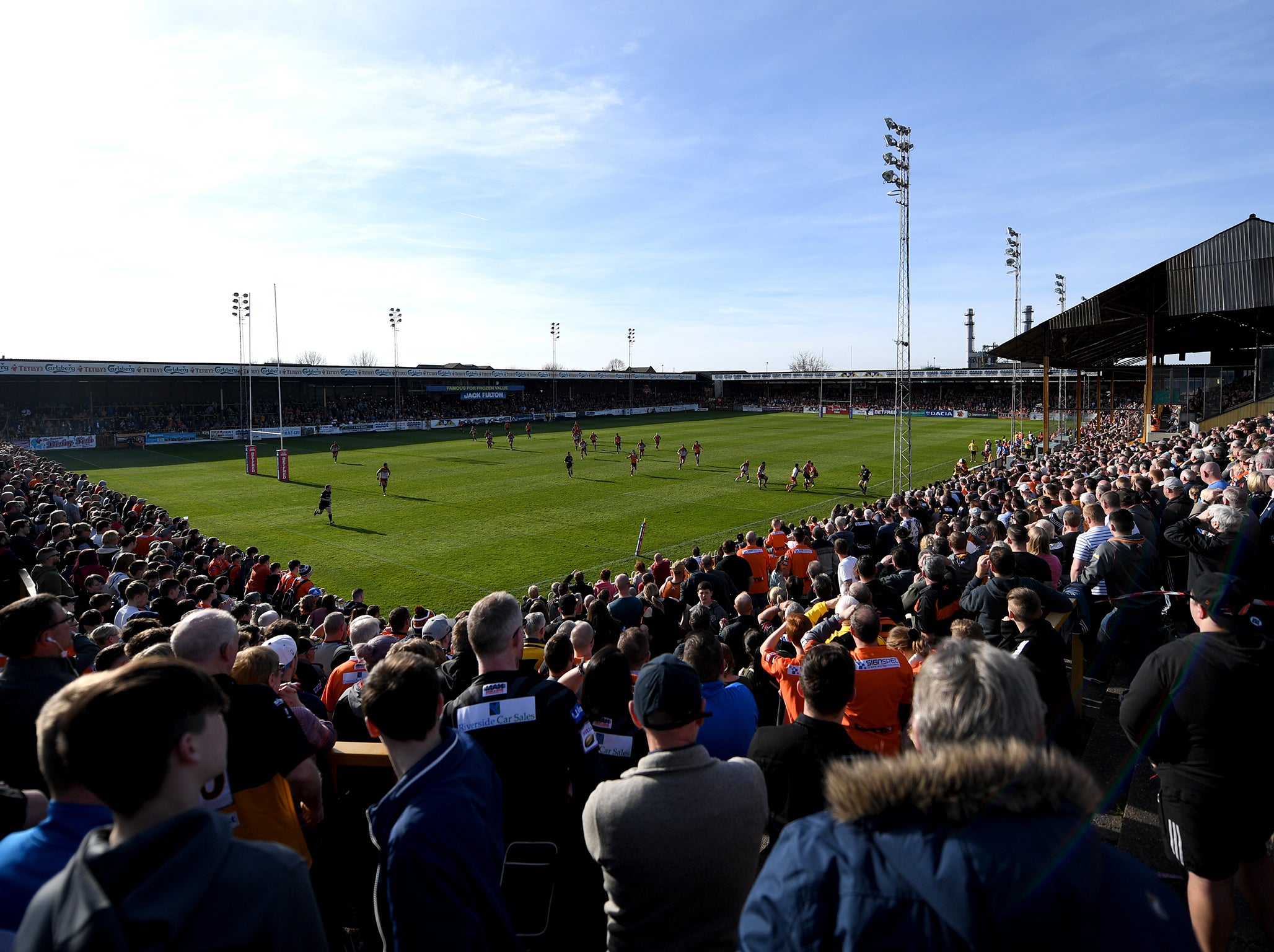
Mick Morgan can scarcely contain his excitement. He’s just been in town collecting lottery subscriptions, and can report that the place is “buzzing”. People have been talking about it for weeks, he says. “We’ve booked corporate, we’ve booked hotel. It’s the first time in 91 years, so we’re doing it right! Last one out, turn out the lights!”
Is there another town in Britain so inextricably linked with its sporting team? It’s hard to think of one. This Saturday, over 30,000 Castleford Tigers fans are expected to travel to Old Trafford to watch their beloved Tigers play in the Super League Grand Final for the first time in their history. The town’s population is barely 40,000. Castleford is not just defined by rugby league. Unless you’re a local, the chances are that were it not for rugby league, you would never have heard of the place at all.
Morgan knows that better than most. He has devoted the last 31 years of his life to the club, as a player, a coach and most recently the organiser of the club lottery. Nevertheless, he’s best known for something else. In the late 1980s, someone asked him to commentate on a few games for the club’s end-of-season video. One day, during a Regal Trophy game against Wigan, one of the Wigan players threw a punch at Castleford’s Andy Hay.
Morgan’s impartiality slipped like a loose-fitting bathrobe. “Oh, what about that! Send him off! Send the dirty get off! Get him off the field! That were diabolical! That’s just typical Warriors! Get him walking! If you’ve got any bottle, Campbell, he should walk… He’s give him a yellow card. I can’t spake. You bottleless get, Campbell. You dickhead.”
Two decades later, someone dug out of the clip and put it on YouTube, where it has been viewed over a million times. Some bright spark laid Morgan’s commentary over a video of Neymar diving. For his part, Morgan is proud if a little bemused by his fleeting viral fame.
“I don’t even have a mobile phone, I’m not in that world,” he says. “But everyone seems to have bought into it. I’m a fan, and when I’m commentating, I commentate as a fan. I’m biased, I admit.”
This is what Castleford is like a place: emotional, passionate, fiercely tribal, proud of their rugby team and proud of their town. A former mining town just south of Leeds, it was decimated by the pit closures of the 1980s. The two chemical works and the glassworks also went. But in recent years, a little light industry has returned.
The Riverside area has been thoughtfully regenerated. The population is growing. There are still a few derelict shops in town, and the place could use a lick of paint, but Castleford has dragged itself back to its feet. And now, its rugby team are leading the pack.
Unlike nearby Leeds, Bradford or Barnsley, there is no great football tradition here. Castleford is rugby league to its bones. Club captain Michael Shenton grew up on the same street as Leigh’s James Clare and Leeds legend Rob Burrow who he will be facing this weekend. “We grew up playing rugby league on the cul-de-sac,” Shenton remembers. “At school, everyone was carrying rugby balls about. It’s an area dominated by rugby league.”
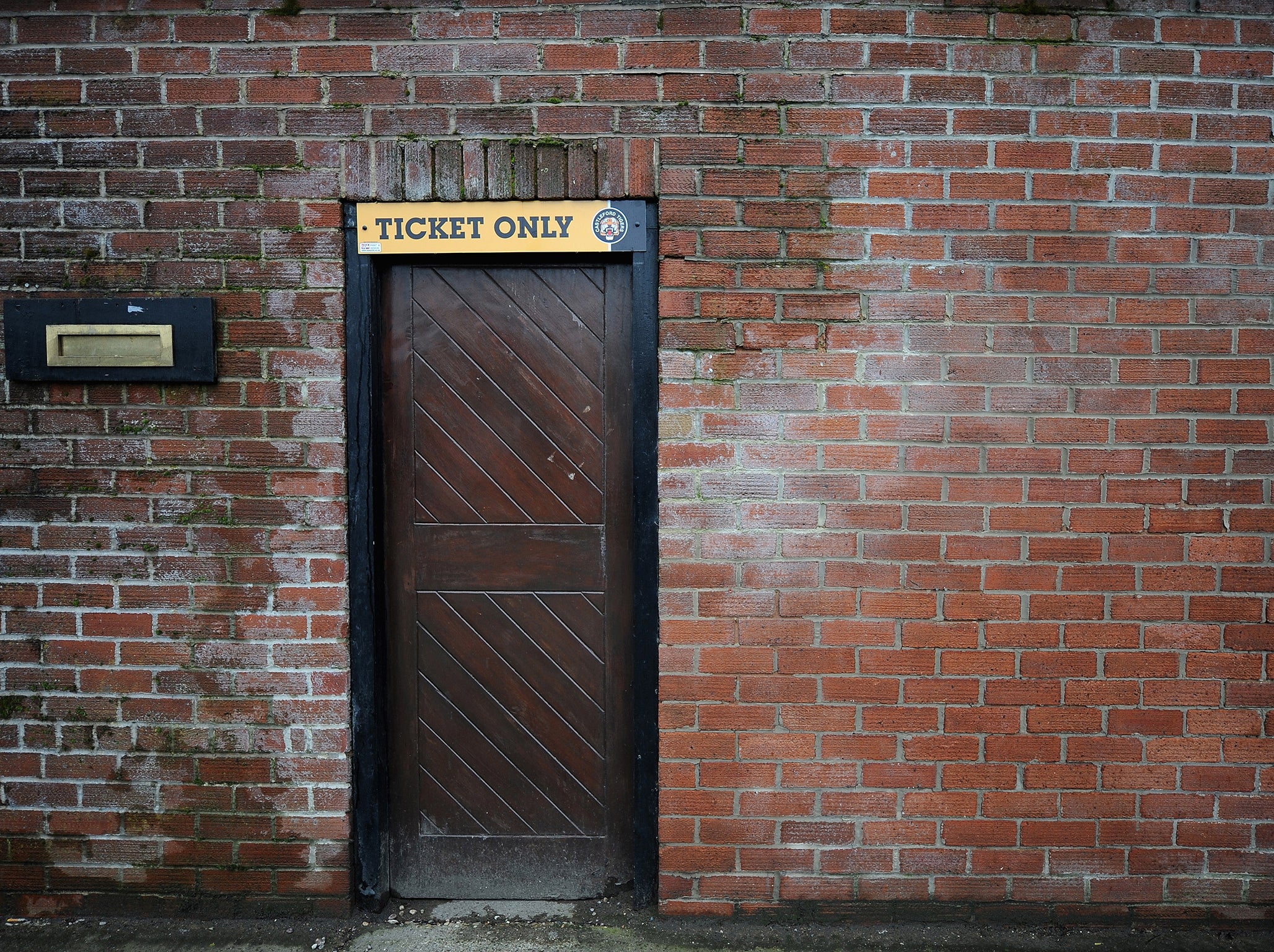
And ever since Luke Gale kicked a thrilling sudden-death drop goal in the semi-final against St Helens last week, Grand Final fever is beginning to kick in. Only four clubs have ever won Super League – Leeds, Wigan, St Helens and Bradford. Yet this season Castleford, a small-town club with no marquee overseas players and a coach born just five miles away, have been head and shoulders above everyone else, playing a breathtaking, eye-catching style of rugby. There are few greater tales in British sport this year.
The attractive style has always been Castleford’s calling card, right back to the ‘Classy Cas’ side of the late 1960s. But the current side have married flair with grit. “We want the game to be exciting,” Shenton says. “But even on our worst day, you’ve got to fight for everything to beat us.”
Shenton has seen it all at Castleford. Ten years ago on Saturday, he was playing in a Championship play-off final to win promotion to Super League. He remembers the years of uncertainty, of mediocrity, of yo-yo-ing between the divisions. “Up, down, up, down,” he says. “Things just weren’t working out. We weren’t quite playing as a team, we didn’t have the right game plan, we didn’t have the proper direction. It was acceptable to be below-par.”
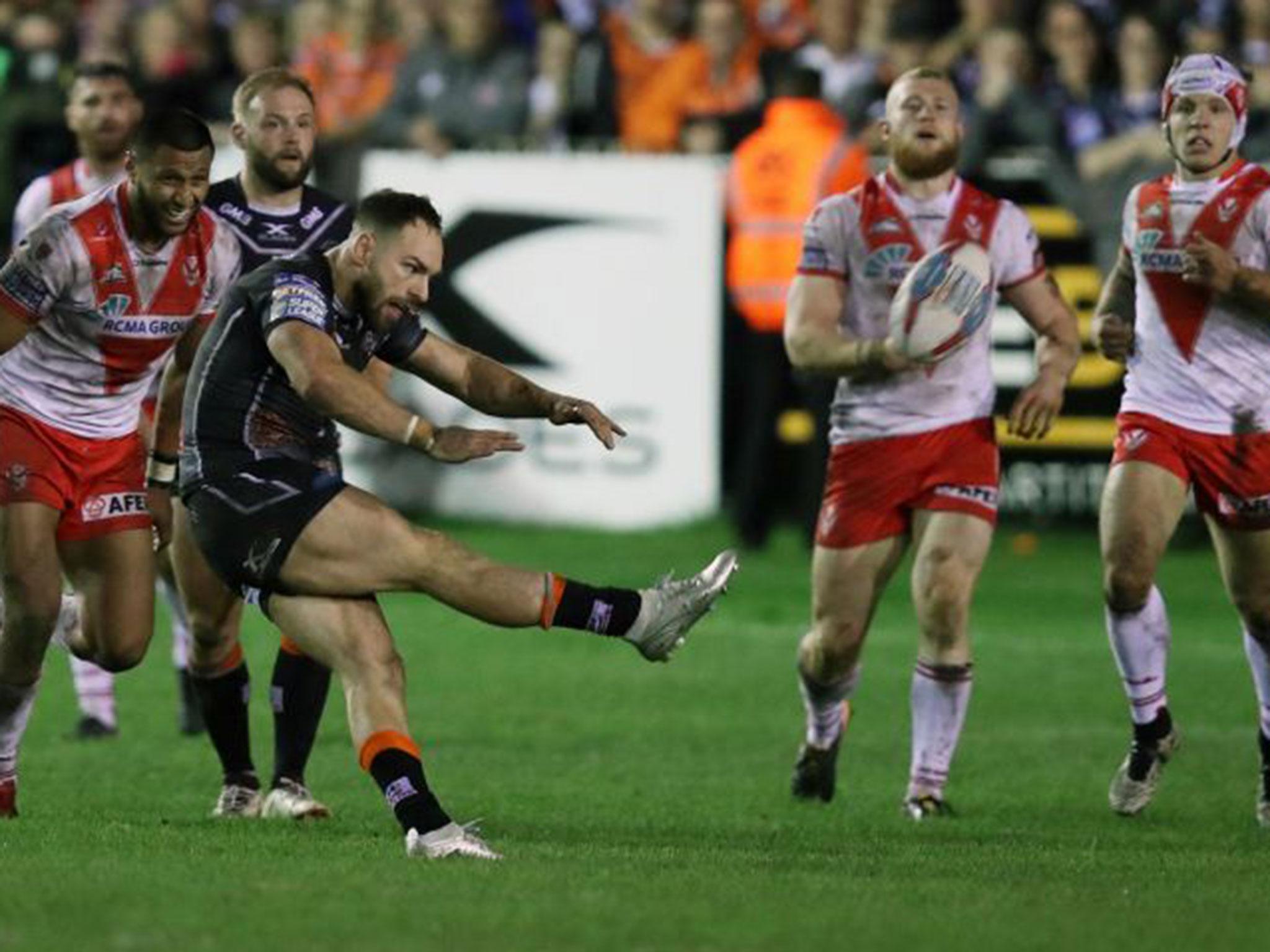
Off the field, the club was in dire straits. The club was in serious danger of going under. “It really looked like we were going into administration,” says Steve Gill, the chief executive who took over in early 2013. “And I think if we had, that would have been it. The club were on a real downward slide.”
Gill, a former miner at Sharlston Colliery, set about trying to rebuild the club’s fortunes. “I didn’t have any help off anybody,” he says. “No help off the previous CEOs. No help off the RFL. Nobody wanted to touch us with a bargepole. There were a lot of bad dealings with previous sponsors who wouldn’t touch us because of how they’d been treated. It was like spinning plates, putting fires out.”
But at least he had identified the coach he wanted to take the club forward. Not everyone at Castleford wanted Powell, the coach of Featherstone in the Championship, at the helm. “It wasn’t as clean-cut as I’d have liked,” Gill remembers. “I had to use my best devious ways to get him in. I told him a few fibs, which is not usually my style. But I knew he was the man we needed.”
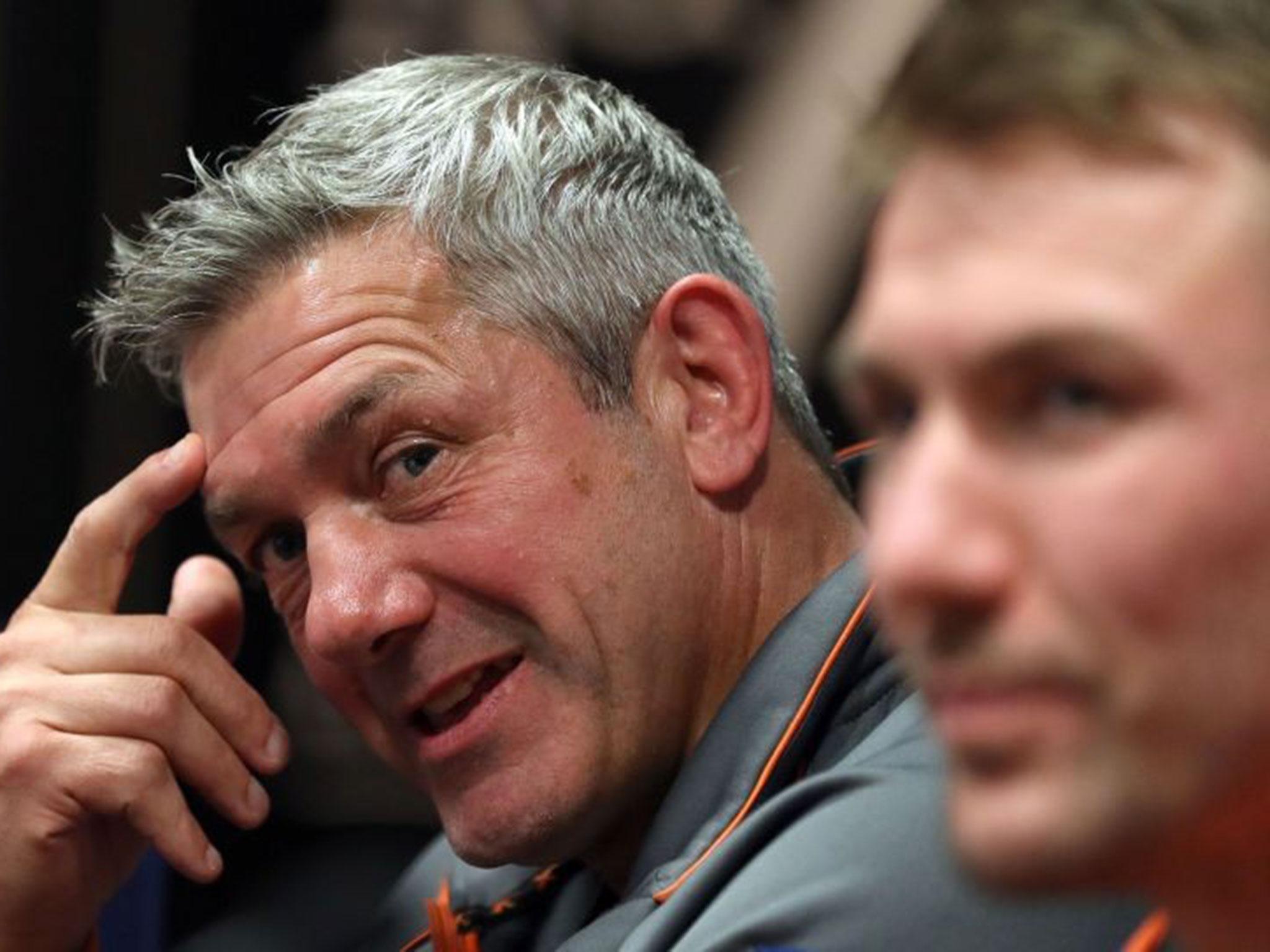
Powell was under no illusions about the parlous financial state the club was in, but as a local boy he also saw the potential. “I always thought this was the job for me,” he says. “I’m from the area, and I know that if you can get it right in Castleford, you’re going to have a great feeling. The fans are going to come.”
Right away, Powell started asserting himself. “It was one of the toughest years of my life,” Shenton remembers. “You had to rate yourself after every game, in front of everybody. And then the coaches rated you, and then the leadership group rated you. It was brutally honest. But that was Daryl making us accountable. Everyone gets to express themselves, but they’re also demanded to reach a certain standard.”
After securing Super League survival in 2013, 2014 saw a sea change. They reached the Challenge Cup Final at Wembley for the first time in two decades. A fourth place was followed by two fifth-placed finishes in 2015 and 2016. They recruited shrewdly. Most importantly in a league defined by constant churn, Powell managed to keep the squad largely intact, whilst continuing to add quality.
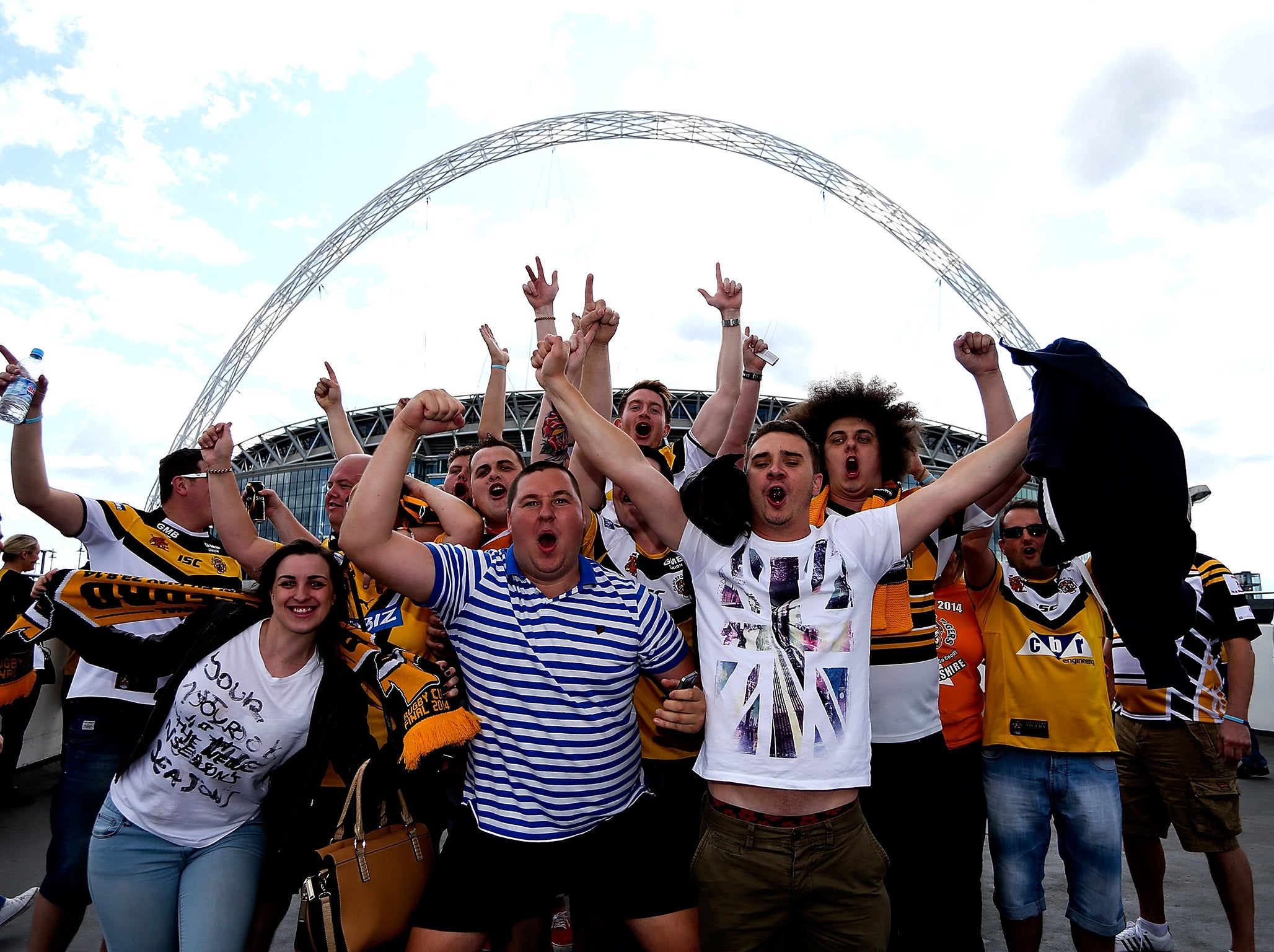
“I can remember meeting him for a coffee in his mansion,” says Gale, who signed from Bradford Bulls at the end of 2014. “He has a big farmhouse, and we had a chat. We probably spoke footy for about an hour, and after I remember ringing my agent and saying ‘I want to sign for Cas.’ I knew I wanted to play for him.”
For Powell was busy instilling an ethos. No longer would Castleford play good rugby and win nothing. They would dazzle, yes, they would entertain. But they would fight as well. “Class and steel,” he explains. “The class of how we play the game. We want to be a blueprint for the British game. And steel is being tough and durable as a group of men. There’s a togetherness – a real spirit and desire to do things for the team. If people don’t fit into that, they stick out like a sore thumb.”
Off the field, Gill’s fire-fighting and plate-spinning had finally come to fruition. The club are back in profit and a brand new stadium is being planned for the 2020 season. Before that, though, they want to bring some silverware back to the old. This season, for the first time in their history, they claimed the League Leaders’ Shield after finishing top of the table during the regular season. There has been some stunning attacking rugby: 66 points against Leeds, 54 against Wigan, 52 against Huddersfield. It is a season that has brought the whole town to life.
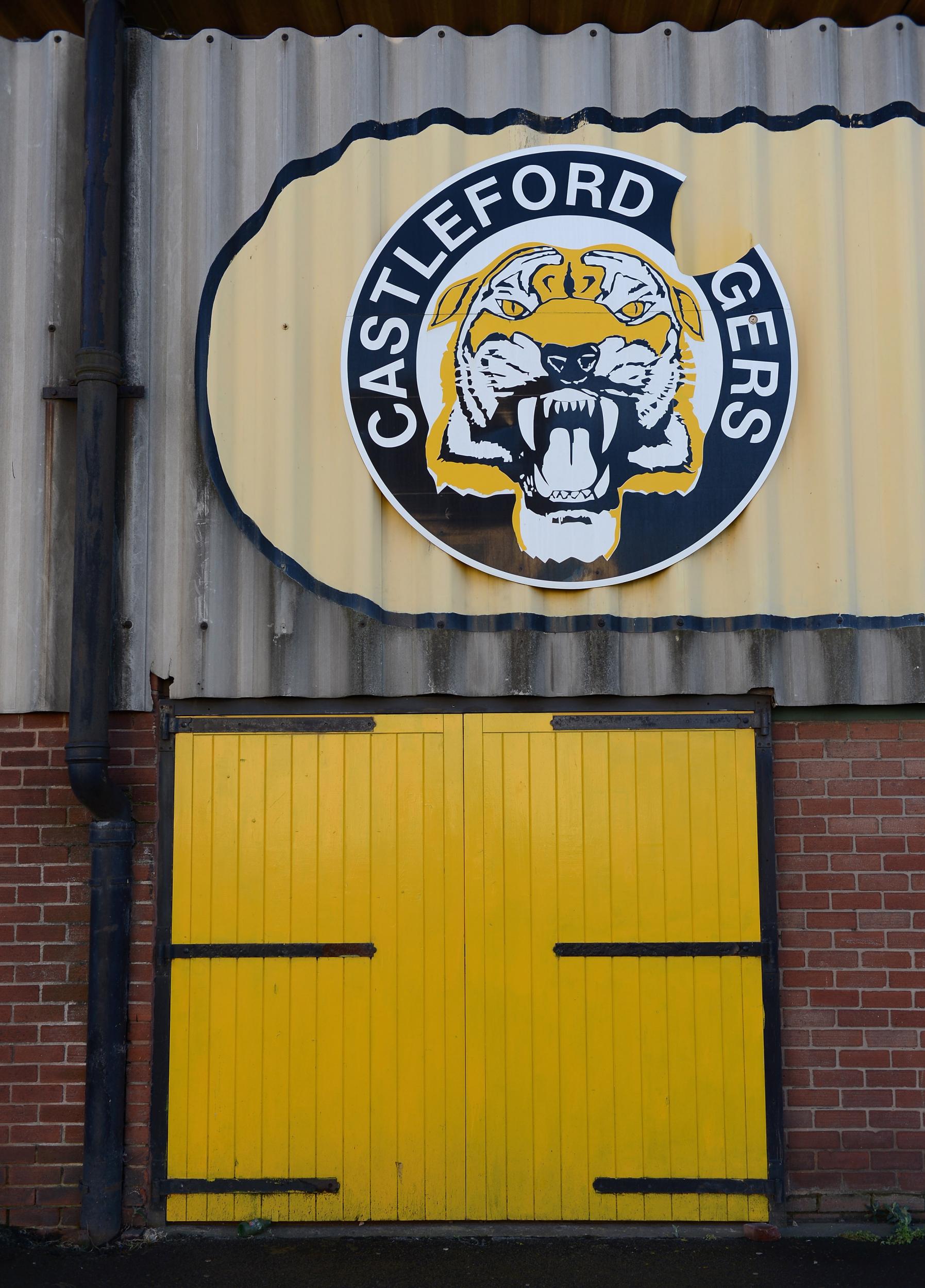
“I love driving into the games and seeing people walking in from two or three miles away with Castleford shirts,” Powell says. “There’s a sense of pride about the rugby league team and the way that they play the game.”
“It’s the heartbeat of the town,” adds Shenton. “Something everyone can relate to. Nearly everyone in the town will have been to a game. We’ve had dads and granddads saying this team is one of the best teams they’ve watched. The people of Castleford know their rugby league, believe me. For us, that’s a massive honour.”
Now, it all comes down to one game. Leeds may have been distinctly second best for much of the season, but they have the big-game expertise to spring a surprise. And this week’s shock exclusion of Zak Hardaker from the Castleford squad for a breach of team discipline has added another subplot to a mouth-watering engagement.
“You’ll understand why I don’t feel so jovial at the moment,” says Gill, who won’t go into details on Hardaker’s misdemeanour but admits he will be sorely missed. “We’ve only come across it two hours ago. I’m a bit subdued. But there are certain things that you can’t do in life if you want to be respected. You’ve got to behave in a manner that’s suitable and right. I love Zak to bits, he’s a great kid, but on this occasion he’s crossed the line.”
For Powell and the rest of the squad, the message will remain the same. Do what they’ve done all season. “Do your jobs,” he says. “You don’t need to do anything different. It’s a big piece of grass, at the end of the day.”
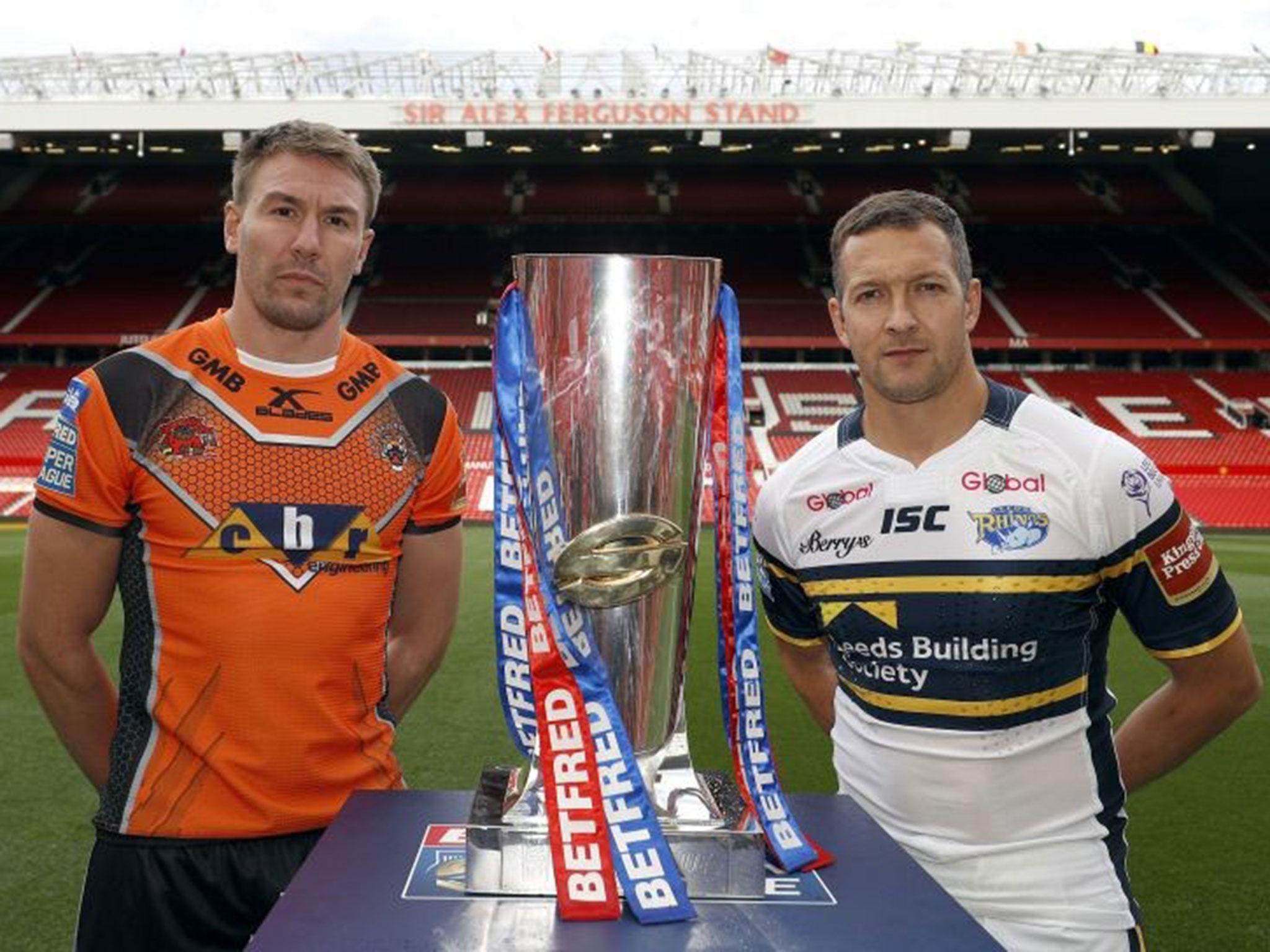
Already, they talk about this being the greatest Castleford side ever. Morgan has seen a few in the last half-century, and in his estimation the current squad are without peer. “For me, this is the best side ever,” he says. “Sixties, they were a good team, a cracking cup team. Eighty-six, they were high up in table. Ninety-four, we had a lot of great players. But this has overtook them.”
For Powell, the local coach of a local club about to take on the game’s biggest stage, there is something more profound at stake.
“You work nine to five,” he says. “The job’s hard, you get up, earn your money, come home, go to bed, and do it again the next morning. You want something to get passionate about. You want something at the weekend that will make you feel good about yourself. If we can make people feel good… well, I think that means something.”
Join our commenting forum
Join thought-provoking conversations, follow other Independent readers and see their replies
Comments
Bookmark popover
Removed from bookmarks